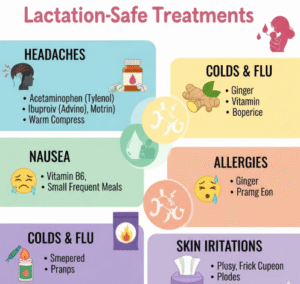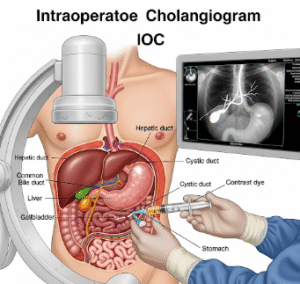In recent years, South Korea has become a global leader in innovation, sustainability, and healthcare — and now, these three forces are merging to address one of the most pressing challenges in modern medicine: plastic waste in medical facilities. From hospitals to clinics, the Korean healthcare sector is making remarkable strides in cutting down single-use plastics, promoting recyclable materials, and adopting eco-friendly alternatives that protect both patients and the planet.
The Problem: Plastic Dependency in Healthcare
Hospitals rely heavily on single-use plastics for hygiene and infection control. Items like syringes, IV bags, gloves, and packaging materials ensure safety — but they also create mountains of waste. According to national health data, Korean medical centers produce hundreds of thousands of tons of medical plastic waste each year, a figure that surged during the COVID-19 pandemic.
While plastics are essential in maintaining sterile environments, their disposal has serious consequences. Most medical plastics are incinerated, releasing greenhouse gases and toxic emissions. Others end up in landfills, contributing to microplastic pollution.
To tackle this, Korea’s government, hospitals, and research institutions have begun implementing comprehensive strategies to reduce, recycle, and replace plastic materials within healthcare systems.
National Policies and Initiatives
Korea’s commitment to environmental sustainability extends into the healthcare sector through government-led initiatives that encourage hospitals to become greener.
● Green Hospital Certification Program: The Ministry of Environment and the Ministry of Health and Welfare jointly promote eco-friendly hospital operations. Facilities are encouraged to reduce plastic packaging, separate waste streams, and introduce reusable items where safe.
● Plastic-Free Hospital Pilot Projects: Seoul and Busan have launched pilot programs in large hospitals, testing the use of biodegradable syringes, reusable containers, and paper-based packaging for medical supplies.
● Procurement Reforms: The government now prioritizes eco-friendly suppliers when purchasing hospital materials. This includes encouraging domestic manufacturers to develop recyclable or compostable alternatives to traditional plastics.
● Zero Waste Healthcare Network: Several hospitals have joined an inter-hospital coalition that shares data, resources, and innovative recycling systems to reduce overall plastic use.
Hospital-Level Innovations
Korea’s top hospitals have been quick to adapt and test sustainable solutions.
● Seoul National University Hospital (SNUH): Implemented a comprehensive waste-sorting system that separates recyclable plastics from hazardous materials. They also introduced bioplastic containers for meal delivery and patient care kits.
● Asan Medical Center: Reduced plastic use in its pharmacy department by switching to paper blister packs and plant-based medication trays.
● Yonsei Severance Hospital: Introduced sterile reusable surgical tools where possible and minimized single-use medical packaging.
● Regional Clinics: Smaller hospitals and clinics now offer reusable patient gowns, metal water bottles, and cloth face masks instead of disposable items.
Technological Solutions Driving Change
Korea’s reputation for innovation extends into sustainability. Tech-driven companies are helping hospitals reduce plastic dependence through:
● Bioplastic Materials: Korean startups are developing medical-grade plastics made from corn starch, sugarcane, or seaweed that are biodegradable yet sterile.
● Smart Waste Management Systems: IoT-based waste bins in hospitals monitor plastic levels and ensure proper recycling.
● 3D Printing with Eco-Materials: Medical devices like splints and prosthetics are being 3D printed using biodegradable filaments.
● Recyclable Packaging Systems: Pharmaceutical companies are transitioning to monomaterial packaging, making recycling easier.
These innovations not only reduce environmental impact but also set new global standards for sustainable healthcare practices.
Public-Private Partnerships
The collaboration between Korea’s public sector and private companies has been crucial in driving progress.
● Corporate Responsibility Programs: Major medical suppliers such as Samsung Biologics and GC Pharma are investing in recyclable lab materials and plastic recovery programs.
● Green Procurement Platforms: Government agencies have created platforms that connect hospitals with certified eco-friendly suppliers.
● Recycling Collaborations: Hospitals now partner with recycling firms to transform used IV bags and masks into new industrial materials.
Challenges in Implementation
Despite progress, Korea faces several challenges in creating a fully plastic-free healthcare system.
● Safety Concerns: Replacing single-use plastics with reusables must not compromise hygiene standards.
● Cost Barriers: Eco-friendly materials often cost more than traditional plastics, making adoption difficult for smaller hospitals.
● Limited Recycling Infrastructure: Medical waste is strictly regulated, and many plastics cannot be recycled due to contamination risks.
● Behavioral Change: Hospital staff and suppliers need consistent education and training to adapt to new eco-friendly systems.
Strategies for Overcoming Barriers
Experts suggest gradual, systematic changes to make the transition sustainable.
● Step-by-Step Substitution: Replace non-critical plastics first — for example, cafeteria packaging, hospital toiletries, and administrative supplies.
● Innovation Grants: Provide financial support for startups developing biodegradable medical-grade materials.
● Education Campaigns: Train healthcare workers on waste segregation and sustainable material handling.
● Collaboration Across Borders: Partner with global hospitals and organizations to share best practices and eco-technology.
The Role of the Public and Patients
Citizens are also part of the solution. Korean patients and visitors are encouraged to bring their own reusable items, such as water bottles or cloth bags when visiting clinics. Public health campaigns emphasize the link between environmental health and human health, making sustainability part of national wellness culture.
● Reusable Kits: Some hospitals now provide eco-friendly patient kits that include bamboo toothbrushes and metal cutlery instead of plastic ones.
● Recycling Corners: Visible recycling bins in lobbies and cafeterias encourage proper waste sorting.
● Community Awareness Events: Hospitals host exhibitions showing how reducing plastic waste contributes to cleaner air and healthier communities.
Future Outlook
Korea’s efforts to minimize plastic use in medical facilities are expected to grow rapidly in the next decade. Government agencies aim to cut medical plastic waste by 30% by 2035, supported by innovation in bioplastics and sustainable procurement. Hospitals are also exploring closed-loop recycling systems, where all plastic waste is processed and repurposed domestically.
● Eco-certified Hospitals: By 2030, many major hospitals plan to achieve international green certifications that measure waste reduction and energy efficiency.
● Circular Medical Economy: The healthcare industry is moving toward a model where plastics are reused or recycled instead of discarded.
● Exporting Innovation: Korean green healthcare technologies, especially in bioplastics and recycling systems, are gaining interest from other Asian countries.
Final Thoughts
South Korea’s healthcare sector demonstrates that environmental responsibility and medical safety can coexist. By reducing plastic use, hospitals not only protect patients but also contribute to global sustainability. The ongoing collaboration between government, startups, and healthcare institutions proves that small changes — such as swapping a plastic cup for a biodegradable one — can lead to significant impact.
● Health for people, health for the planet.
● Innovation meets sustainability in Korea’s hospitals.
● A greener medical future begins with every choice we make.
Korea’s determination to reduce plastic in medical facilities is more than a policy — it’s a vision for a cleaner, safer, and more sustainable healthcare system for generations to come.













